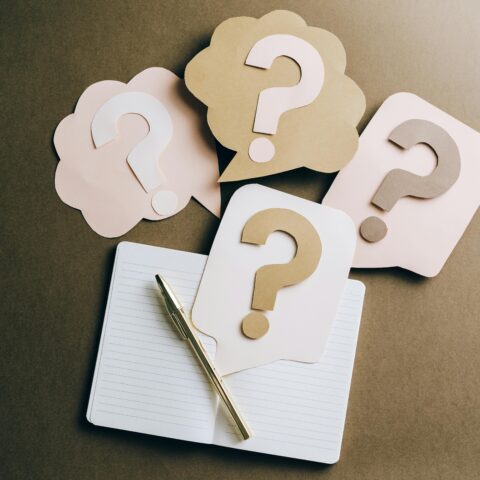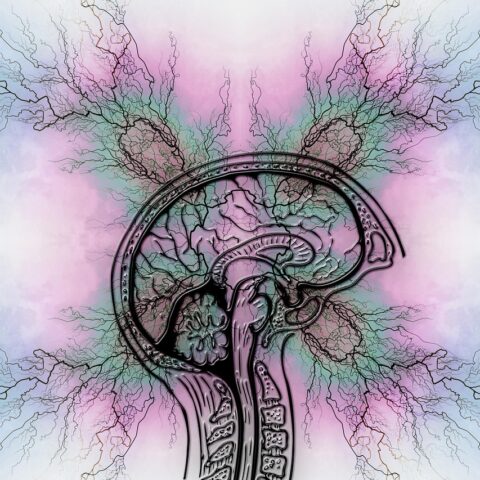Learn how ADHD diagnosis and treatment actually work with this in-depth guide based on clinical research, expert advice, and real-world experiences from ADHD communities.
Introduction to ADHD Diagnosis and Treatment

The journey to an ADHD diagnosis and treatment plan is rarely straightforward. For many people, it feels like a long, confusing process full of mixed messages, outdated stereotypes, and frustrating delays. You might spend years struggling with distraction, overwhelm, or emotional chaos before anyone even suggests ADHD as a possibility.
At ADHD Goat, we’ve seen thousands of these stories shared across Reddit, TikTok, Discord, Facebook groups, and mental health communities. We’ve also studied the clinical research, reviewed professional guidelines, and spoken with people who’ve navigated this journey personally. This guide merges both worlds—clinical knowledge and lived experience—to give you a brutally honest, hyper-relevant breakdown of how ADHD diagnosis and treatment really work today.
If you’re here, you’re likely wondering: Do I have ADHD? What happens if I do? And how do I get help that actually works? This guide is built to answer exactly that.
Updated June 2025
Table of Contents
1. ADHD Diagnosis and Treatment Start With Recognizing the Signs
Before you even enter a professional’s office, ADHD diagnosis usually starts with self-recognition. You may begin to notice patterns:
- Constant procrastination and missed deadlines
- Struggles focusing even on tasks you enjoy
- Emotional overreactions to minor frustrations
- Difficulty organizing tasks or staying on top of obligations
- Time blindness, impulsivity, or hyperfocus
For many adults, this realization comes after stumbling across someone else’s ADHD story online and suddenly feeling like your entire life makes sense for the first time.
If you want a full breakdown of ADHD symptoms to compare your experiences, visit our master guide on ADHD Symptoms.
2. Self-Assessment Tools Are a Helpful Starting Point
Once ADHD is on your radar, many people turn to self-assessment quizzes to better understand whether their experiences align with ADHD diagnostic criteria.
These tools include:
- The Adult ADHD Self-Report Scale (ASRS)
- The Vanderbilt ADHD Diagnostic Rating Scale (for children)
- Symptom checklists offered by organizations like CHADD or ADDitude
While these quizzes are not diagnostic, they’re a valuable first step in preparing for a professional evaluation.
We’ve created our own ADHD self-assessment that reflects both clinical standards and lived experiences. You can take our full ADHD Quiz to get started.
3. Choosing the Right Professional for ADHD Diagnosis and Treatment
One of the most important decisions you’ll make is choosing a professional who understands ADHD comprehensively. Qualified ADHD diagnosis and treatment providers include:
- Psychiatrists
- Clinical psychologists
- Licensed mental health counselors
- Pediatricians (for child assessments)
- Neurologists (in some complex cases)
Many people in ADHD communities warn that some general practitioners may oversimplify ADHD or rely on outdated stereotypes. This is particularly risky for women, LGBTQ+ individuals, BIPOC, or adults with high-masking abilities, where symptoms may be misattributed to anxiety, depression, or trauma.
Seek a professional who:
- Specializes in ADHD evaluations
- Understands adult ADHD presentations
- Recognizes overlapping mental health conditions
- Incorporates both medical and behavioral perspectives
You can use trusted directories like CHADD’s professional directory to locate experienced providers.
4. The Diagnostic Interview: What Actually Happens
The diagnostic process typically includes:
- A detailed clinical interview
- Full medical and psychological history
- Review of developmental patterns (especially for childhood onset)
- Evaluation of current functioning across work, school, relationships, and home life
- Input from partners, family members, or teachers when relevant
ADHD diagnosis follows DSM-5 guidelines, but experienced clinicians will go far beyond the checklist to fully understand your lived experience. Many ADHDers report that the diagnostic interview itself feels validating after years of feeling dismissed or misunderstood.
5. Ruling Out Other Conditions Is Critical
A professional ADHD diagnosis always includes ruling out other possible explanations for your symptoms. This is called differential diagnosis.
Common conditions that mimic ADHD symptoms include:
- Anxiety
- Depression
- Bipolar disorder
- PTSD
- Learning disabilities
- Thyroid dysfunction
- Sleep disorders
Many people on Reddit describe being misdiagnosed for years before ADHD was properly identified because these overlapping conditions clouded the picture. A comprehensive diagnostic process ensures the right condition is being treated.
To explore how ADHD can overlap with other mental health conditions, visit our deep dive on ADHD and Bipolar Disorder.
6. ADHD Diagnosis and Treatment Often Involve Emotional Processing
Receiving an ADHD diagnosis is often emotionally complex. People frequently report experiencing:
- Relief (“Finally, an explanation.”)
- Grief (“Why wasn’t this caught sooner?”)
- Anger (“I’ve struggled unnecessarily for years.”)
- Hope (“Now I can move forward with a plan.”)
These emotional waves are extremely common, and many turn to peer communities for support. ADHDers on Discord servers, Facebook groups, and Reddit often describe finding tremendous comfort in seeing others express these same feelings.
If you’re newly diagnosed and processing what comes next, start building your treatment plan by visiting our comprehensive ADHD Treatment Guide.
7. ADHD Treatment Is Highly Individualized
Once you receive an ADHD diagnosis, the next phase is finding a treatment plan tailored to your specific needs. ADHD treatment is never one-size-fits-all. What works for one person may not work for another, which is why ongoing communication with your healthcare provider is essential.
There are two broad pillars of ADHD treatment:
- Medical (medication-based) treatments
- Non-medical (behavioral and lifestyle) interventions
Most effective treatment plans combine both.
8. ADHD Medications: The First-Line Treatment
Medications are often the cornerstone of ADHD treatment, particularly for moderate to severe presentations. ADHD medications fall into two primary categories:
Stimulant Medications
- Methylphenidate-based (Ritalin, Concerta, Focalin)
- Amphetamine-based (Adderall, Vyvanse, Dexedrine)
Stimulants target dopamine and norepinephrine pathways in the brain, improving attention, impulse control, and executive function for many ADHDers. Numerous clinical studies, including extensive data published in The Journal of the American Academy of Child & Adolescent Psychiatry, confirm stimulants’ effectiveness as first-line ADHD treatment options.
Non-Stimulant Medications
- Atomoxetine (Strattera)
- Guanfacine (Intuniv)
- Clonidine
- Bupropion (sometimes used off-label)
Non-stimulants may be recommended when stimulants are poorly tolerated or contraindicated due to side effects or comorbid conditions.
For a full breakdown of available ADHD medications, including their mechanisms and pros/cons, visit our detailed guide on the ADHD Medication List.
9. Non-Medication ADHD Treatment Options
Medication is powerful, but it’s not always sufficient on its own. Many ADHDers see tremendous improvement with non-medication interventions designed to support executive function, emotional regulation, and behavioral management.
These include:
- Cognitive Behavioral Therapy (CBT)
- ADHD coaching
- Organizational skills training
- Mindfulness practices
- Exercise routines (especially cardio, which has well-documented benefits for ADHD symptom management)
- Sleep optimization
- Diet and nutritional support
One 2022 study published in Journal of Psychiatric Research found that structured CBT interventions designed for ADHD resulted in significant improvements in time management, task initiation, and emotional regulation—even when used alongside medication.
Many ADHDers in Reddit communities like r/ADHD describe the most effective treatment as a “stacked approach,” combining medication with therapy, coaching, and lifestyle changes.
10. ADHD Coaching: A Growing Tool for Daily Functioning
ADHD coaching has gained popularity in recent years as a powerful supplement to traditional therapy. Coaches focus on:
- Building practical skills for managing daily tasks
- Developing sustainable routines
- Improving time management and prioritization
- Reducing shame-based thinking
Unlike therapy, coaching is forward-focused, helping clients create actionable strategies for navigating daily ADHD challenges. Many ADHDers in Discord coaching communities and Facebook accountability groups describe coaching as the missing link that finally made treatment feel sustainable.
Reputable ADHD coaching programs are backed by organizations like ADDCA (ADD Coach Academy) and ADHD Coaches Organization, ensuring coaches receive specialized ADHD training.
11. ADHD Lifestyle Interventions: The Overlooked Power of Daily Habits
Lifestyle factors play an enormous role in managing ADHD symptoms. While often overlooked in medical discussions, behavioral changes can have profound effects:
- Sleep: Sleep deprivation amplifies ADHD symptoms. Establishing consistent sleep routines improves focus, impulse control, and mood regulation.
- Nutrition: Research increasingly connects nutrition to ADHD symptom management. Diets emphasizing omega-3 fatty acids, whole foods, and reduced refined sugar intake may help stabilize mood and focus.
- Exercise: Cardiovascular exercise boosts dopamine and executive function. Many ADHDers report that 20-30 minutes of cardio daily dramatically improves focus.
- Mindfulness & Meditation: ADHDers frequently struggle with mindfulness due to racing thoughts. However, structured mindfulness programs adapted for ADHD (short, guided, highly structured) show promise in reducing emotional dysregulation.
For more on how nutrition influences ADHD management, visit our dedicated guide on Nutrition for ADHD.
12. The Role of Community in ADHD Diagnosis and Treatment
One of the most powerful—yet often underestimated—tools in ADHD treatment is community. Peer support offers:
- Validation (“I’m not alone.”)
- Practical tips from people living it every day
- Emotional support during treatment challenges
- A safe space to vent frustrations without judgment
Online communities like Reddit’s r/ADHD, ADHD-specific Discord servers, TikTok creator networks, and Facebook ADHD support groups have become lifelines for many. These spaces allow people to share the nuances of living with ADHD that aren’t always captured in clinical settings.
13. ADHD Diagnosis and Treatment Is an Ongoing Process
Finally, it’s crucial to understand that ADHD diagnosis and treatment aren’t one-time events. They’re ongoing processes that may evolve over time as your needs change.
You may:
- Adjust medications
- Shift therapy or coaching approaches
- Refine lifestyle habits
- Revisit treatment goals as new life demands arise
Successful ADHD treatment isn’t about achieving perfection. It’s about building systems that support your brain long-term, allowing you to function better while showing yourself compassion.
Frequently Asked Questions: ADHD Diagnosis and Treatment
Can I get an ADHD diagnosis online?
Yes, but choose carefully. Reputable telehealth platforms with licensed professionals can provide valid ADHD evaluations. Avoid “quick diagnosis” services with limited screening protocols.
Can ADHD treatment work without medication?
Yes. Many ADHDers benefit from non-medication interventions such as CBT, coaching, mindfulness, and lifestyle changes. However, for moderate to severe cases, medication often provides the most immediate symptom relief.
What happens if I’m misdiagnosed?
This is why thorough evaluations with experienced providers are critical. Misdiagnosis can lead to ineffective or harmful treatment plans. Seek second opinions if your diagnosis feels incomplete.
Can ADHD treatment be adjusted over time?
Absolutely. ADHD treatment is not static. Medications, therapy, coaching, and lifestyle strategies often require adjustments as your needs change.
Conclusion: Navigating ADHD Diagnosis and Treatment Successfully

Receiving an ADHD diagnosis and treatment plan is one of the most transformative experiences many people describe. After years — often decades — of struggling with focus, executive dysfunction, emotional dysregulation, and overwhelming self-criticism, finally having answers can feel like both a relief and a rebirth.
The ADHD diagnosis process helps you see that these challenges were never moral failings or personal weaknesses, but rather symptoms of a neurodevelopmental condition with real, treatable causes. ADHD treatment then builds on this foundation, offering both medical and non-medical tools that help you function better, feel calmer, and finally move toward sustainable progress.
From professional evaluations to personalized medication plans, therapy, coaching, and lifestyle interventions, effective ADHD treatment stacks multiple tools together. The process evolves over time, but with consistent support, ADHD becomes something you manage — not something that controls you.
If you’re ready to take the next step after reading this guide, start by exploring our full resources on ADHD Diagnosis, ADHD Treatment, ADHD Testing, and ADHD Symptoms.
About the Author
Jenny Mirah
I’m Jenny Mirah — writer, researcher, and someone who spent far too long lost in ADHD chaos before finally receiving an accurate diagnosis. After years of struggling to manage focus, emotional regulation, and executive dysfunction, my diagnosis allowed me to transform my approach to daily life. Now I combine obsessive research with my own lived experiences and countless hours spent in online ADHD communities to create practical, brutally honest resources at ADHD Goat. You can find more of my work at adhdgoat.com/author/jenny-mirah.
What Is ADHD Goat?
ADHD Goat is a research-backed, community-powered platform for people living with ADHD, neurodivergence, and mental health challenges. We combine peer-reviewed scientific research, professional guidelines, and real-world insights from thousands of voices in Reddit threads, Discord servers, TikTok ADHD creators, and support groups. Every article bridges clinical expertise with lived experience to create honest, actionable content for people navigating ADHD in the real world.
Suggestions from ADHD Goat
- If you’re starting ADHD diagnosis and treatment, begin tracking your symptoms and challenges in a simple daily journal to share with your provider.
- Connect with ADHD communities online to hear from others going through similar experiences.
- If you’re overwhelmed by where to start, focus first on sleep hygiene — consistent sleep often dramatically improves ADHD symptoms.
- Consider combining professional treatment with ADHD coaching for added day-to-day support.
- Explore our cornerstone guides on ADHD Symptoms, ADHD Diagnosis, ADHD Treatment, and ADHD Testing for a complete understanding of your next steps.
Transparency Notice
All content on ADHD Goat is created through a rigorous research process combining peer-reviewed medical literature, expert clinical guidelines, and the lived experiences of thousands of real people across Reddit, Discord, Facebook groups, TikTok, and ADHD support communities. Our editorial team carefully verifies all content against current scientific evidence while ensuring that authentic, community-driven perspectives remain central to every article we publish. For questions, suggestions, or feedback, contact us at adhdgoat.com/contact. For full legal disclaimers, please read our Disclaimer.








